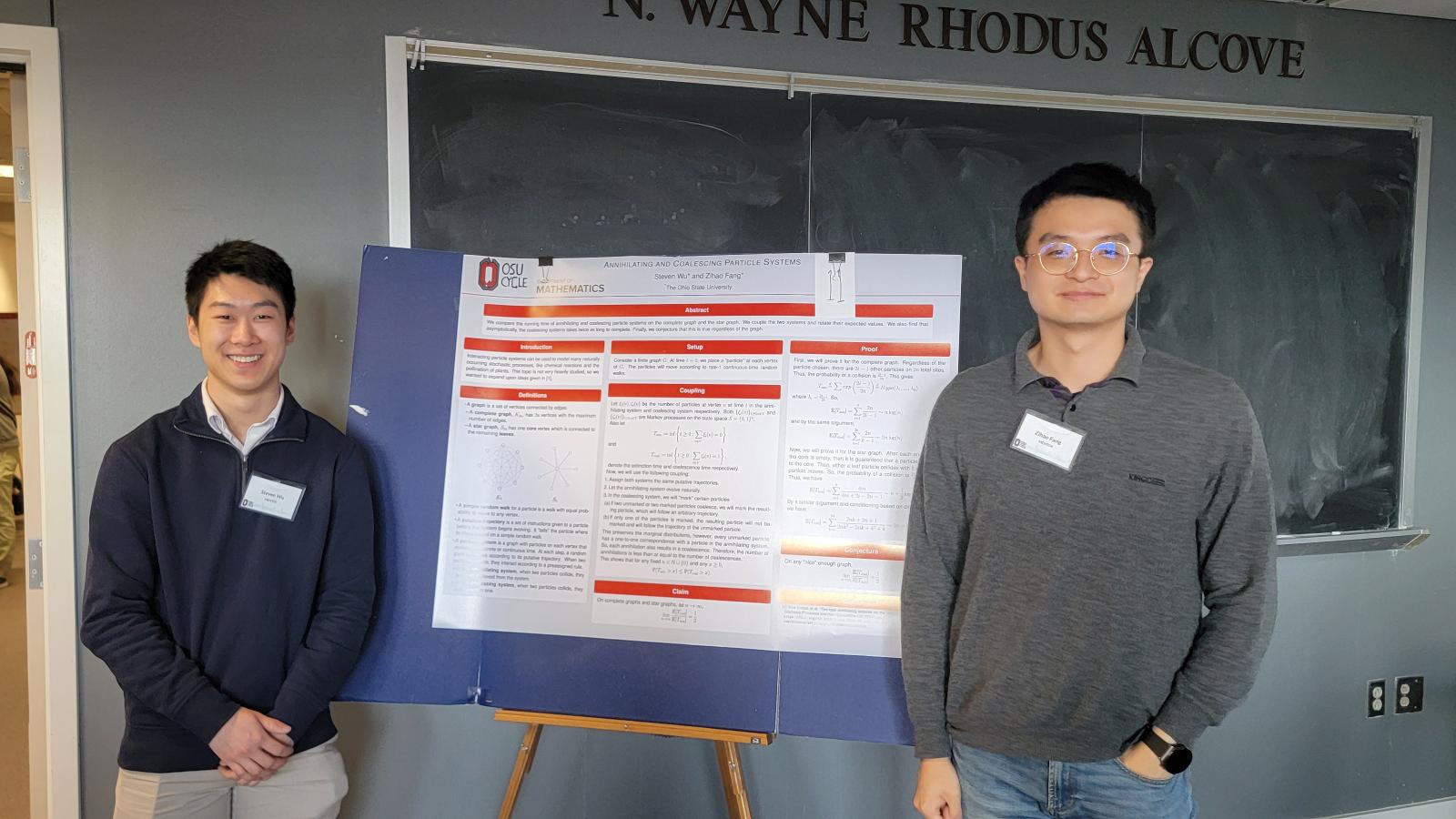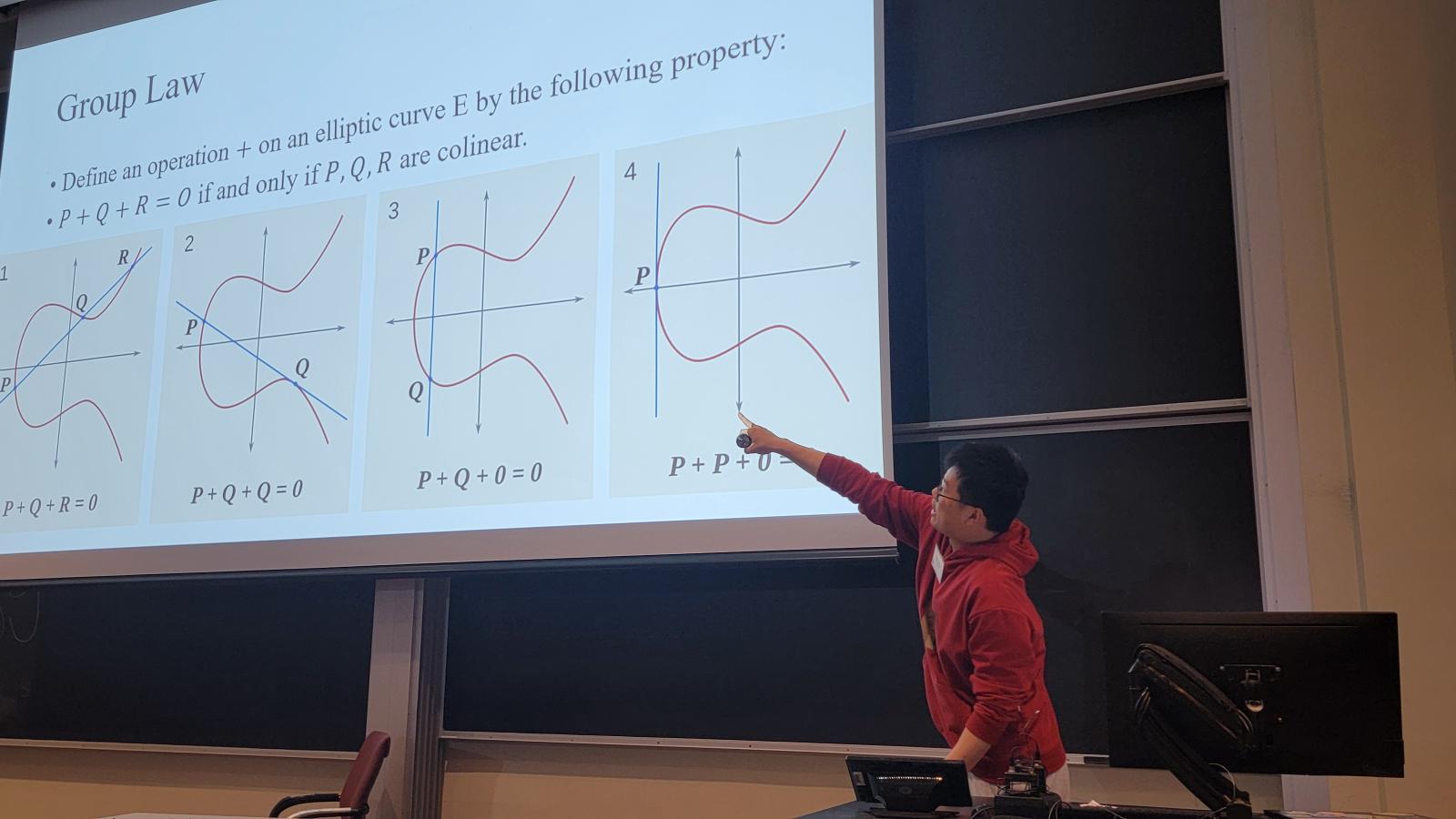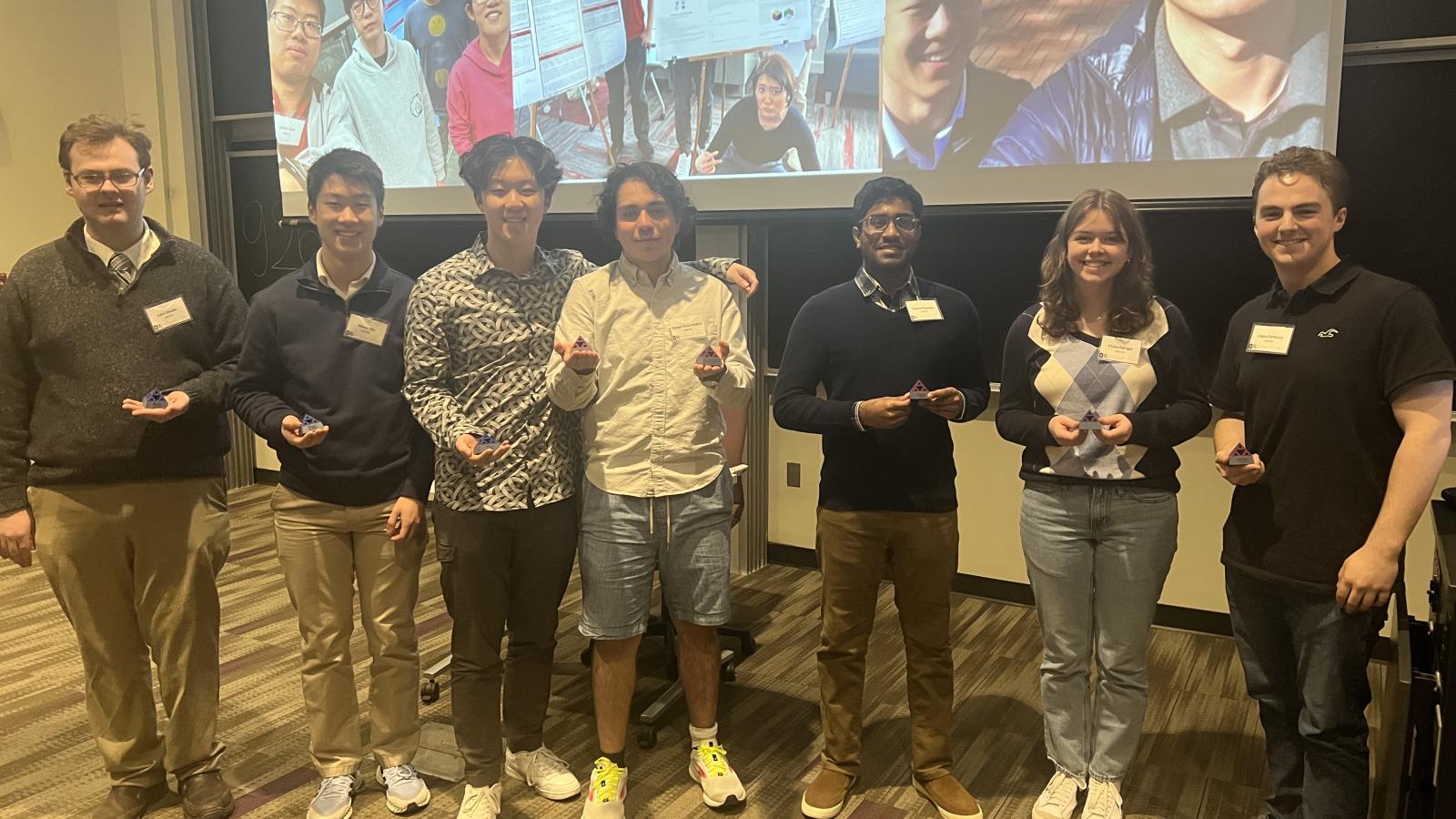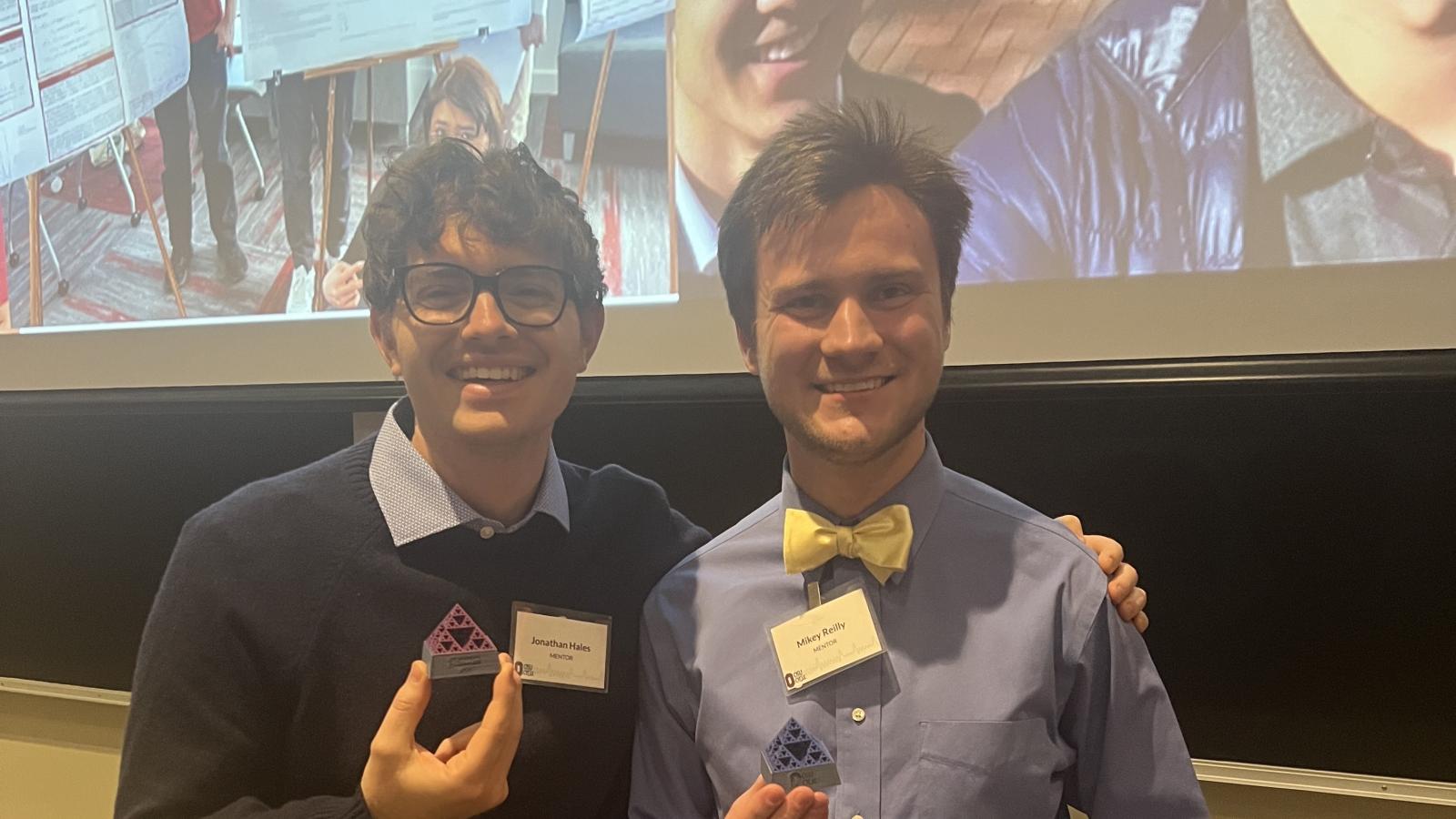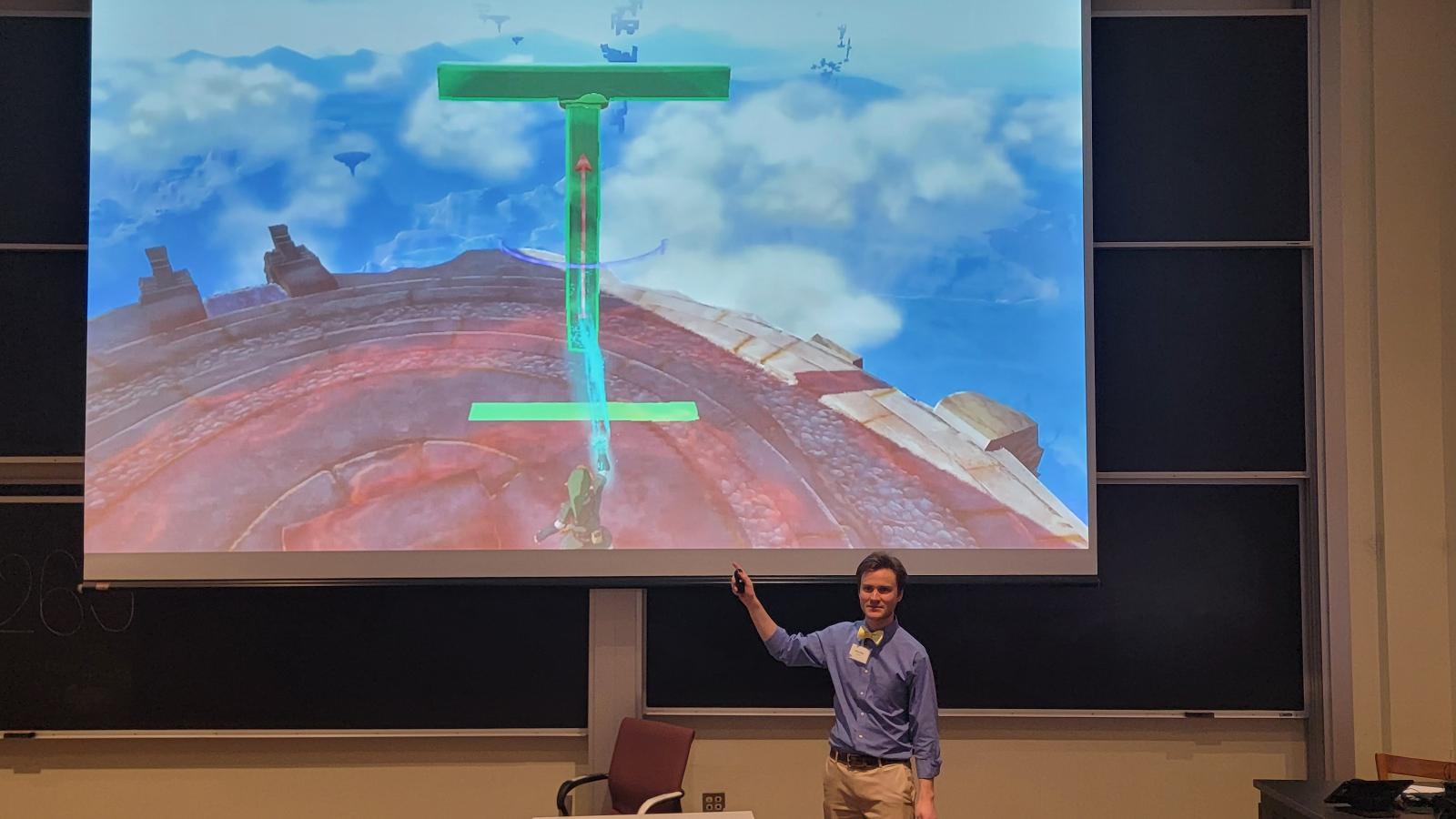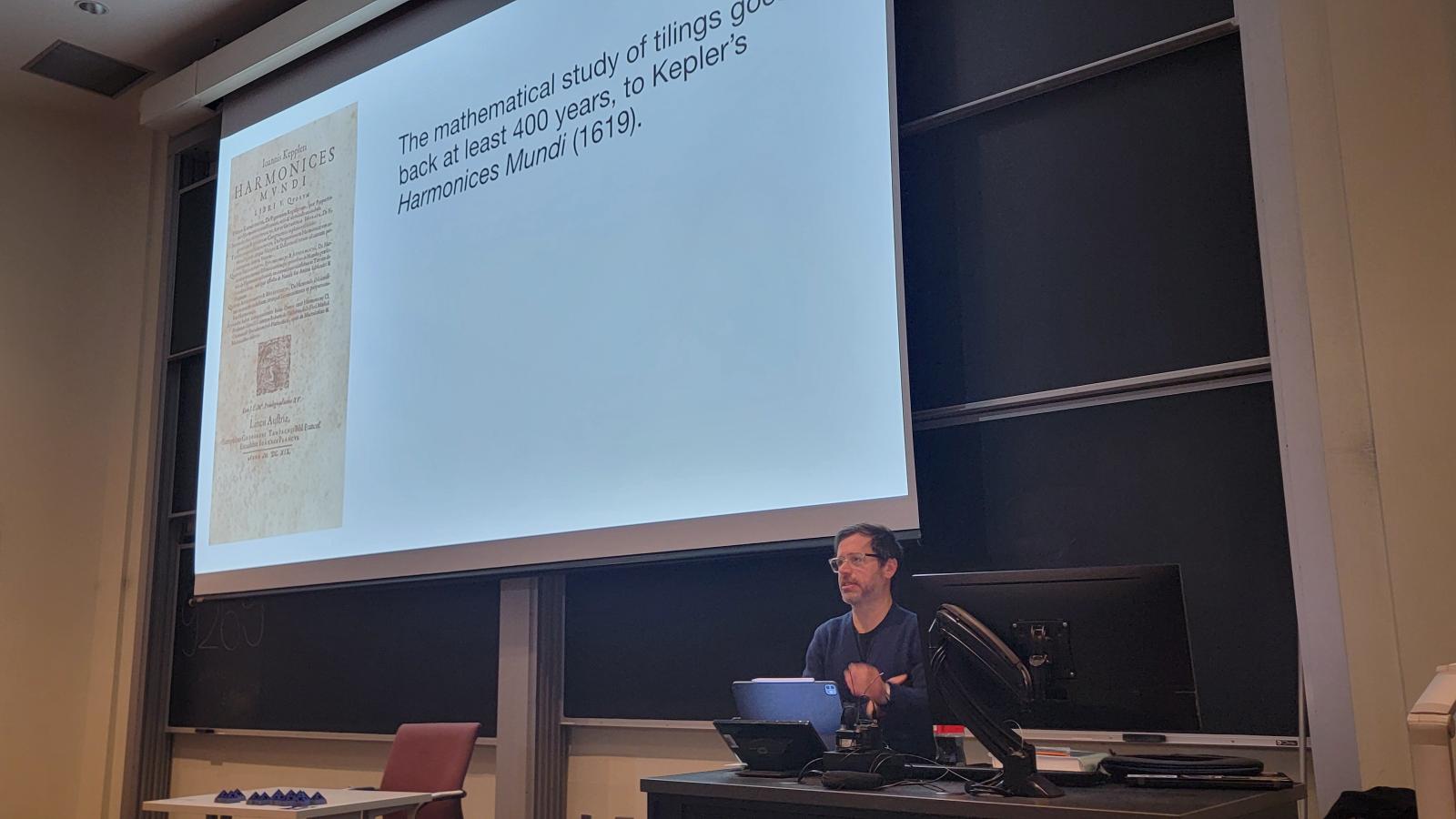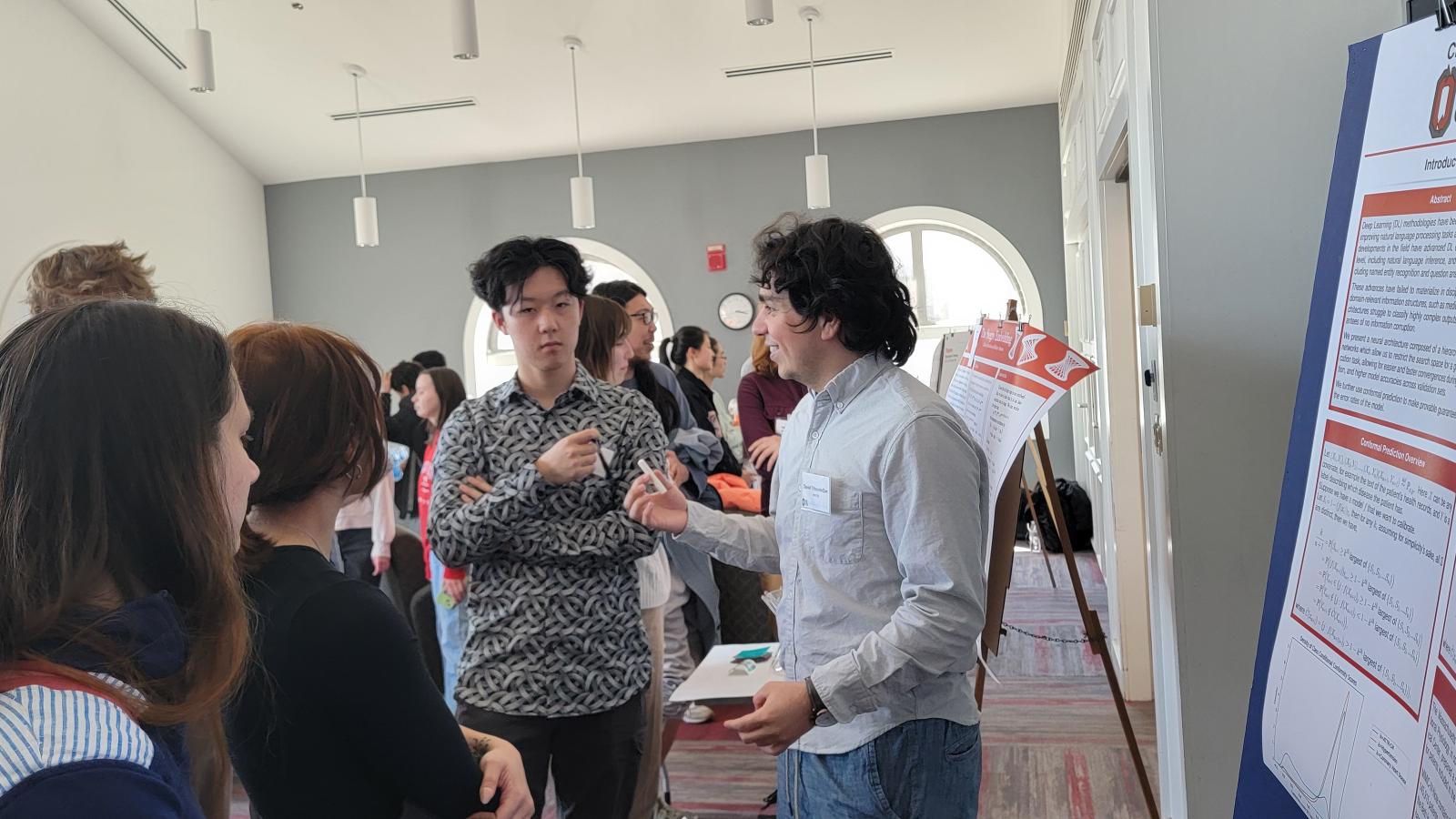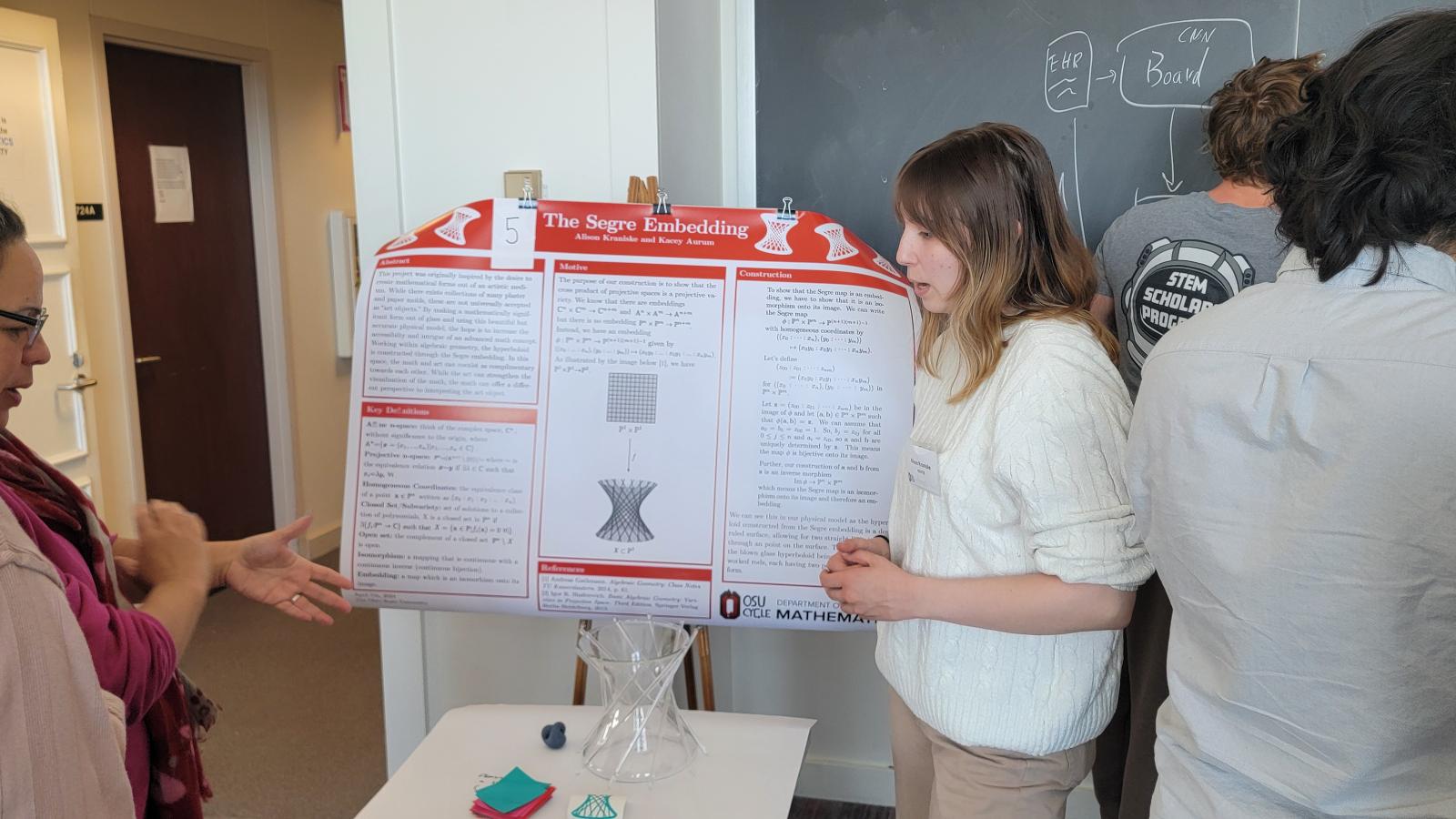Cycle is a community of undergraduate and graduate students in the Department of Mathematics with the aim of providing mentoring for first-year mathematics majors transitioning to the university setting. Each year, Cycle pairs undergraduate mentees from underrepresented groups with graduate student and postdoc mentors, and together these mentoring groups work on research in an active area of mathematics or statistics. This individualized instruction exposes students to fields outside the standard curriculum. Indeed, student projects have included topics such as algebraic geometry, category theory, and machine learning, all currently very active among researchers, extremely useful in industry work, and not offered at an undergraduate level. Cycle engages students with these topics earlier than they would otherwise be able, not only by their own projects, but also by providing a space where students are exposed to the work of their peers.
Each spring, students create a professional academic poster outlining their research from the year. In April, Cyclehosts a conference in which mentees present their work to a general audience comprised of all of the Cycle participantsas well as faculty, staff, other students, and even some families of students. This conference provides the opportunityto practice presentation skills, and students learn a wide array of topics from each other. Additionally, the conferenceincludes spoken presentations by Cycle mentors and professors, providing even more variety of mathematics forstudents to engage with. Beyond the conference, some of the mentoring pairs have published original results together, and some students this year are working towards publication. It is incredibly rare for an undergraduate student to publish in mathematics, so these instances demonstrate a strong and successful mentoring relationship.
The most recent Cycle Conference, on April 7, 2024, was the third annual such event. The conference began withtalks by graduate students, followed by a poster session where the undergraduate participants presented the researchthat they conducted through the program. The conference then concluded with dinner followed by the plenary talk by Dr. Matt Kahle on tilings and tessellations.
The conference also offers an opportunity for students to interact with their own professors outside of the classroom environment. Indeed, many professors attend the conference each year to see the students’ presentations.
Additionally, there is a puzzle hunt for students to participate in with their mentoring group wherein they solve mathematical puzzles which lead them to nearby locations, and the students compete to solve the puzzles first in order to win prizes. This fun competition serves as an opportunity for students to bond with their mentors outside of the research that they conduct.
In summation, Cycle is a great benefit to the mathematics community and to its students, focusing on providing guidance to students, building community, and promoting diversity, equity, and inclusion in the Department of Mathematics.
Learn more and get involved at the OSU Cycle website:https://math.osu.edu/undergrad/osu-cycle
Article contributed by Kacey Aurum

